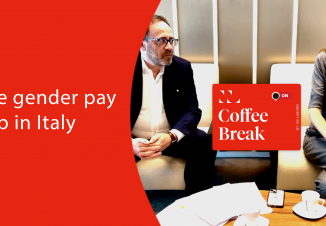
Food delivery riders in Italy: an evolving relationship
The gig economy (or the on-demand economy, platform-based services, in-app collaborations, fourth industrial revolution work, however you choose to describe it) has been front-page news in employment law recently. Its impact, of course, is not limited to employment: the gig model involves technology, working and living habits, regulators and consumers alike. The food delivery sector is one of the most active (and visible) in this context. We have all seen riders cycling through the streets, delivering food through app-based systems. We have all read cases, decisions, and articles (hopefully also Ius Laboris guides) on the gig economy and riders’ status.
Italy is very active on this front and a recent court decision has intensified the debate around this model. Now is a good moment to stop and see what has happened over the last few months.
On 1 June 2018, his first day in office, thenew Minister of Labour Luigi Di Maio addressed food delivery riders and made a public declaration regarding their situation. He called for the protections that are needed to ensure dignity in this type of work.
After the declaration, a Ministry negotiation round tablewas called between players in the food delivery sector including companies, unions, trade associations and the riders’ association. The round table is ongoing and is analysing the model and dynamics of the sector.
In the meantime, the key employment law questions on riders’ status received a second court-sanctioned answer: they are independent workers, according to the Milan Employment Tribunal.
This is the current situation in Italy; there are likely to be further developments before the year is out.
The Milan decision
The Milan case involved a rider’s claim for employee status against the company Glovo. The judge rejected the claim, after a trial with written submissions and witness statements. His reasoning, published on 10 September 2018, was based on the following arguments:
These were the judge’s main arguments, leaving aside some relevant but country-specific technical ones. This decision is the second in Italy, after the Turin Foodora decision in April (analysed here ).


